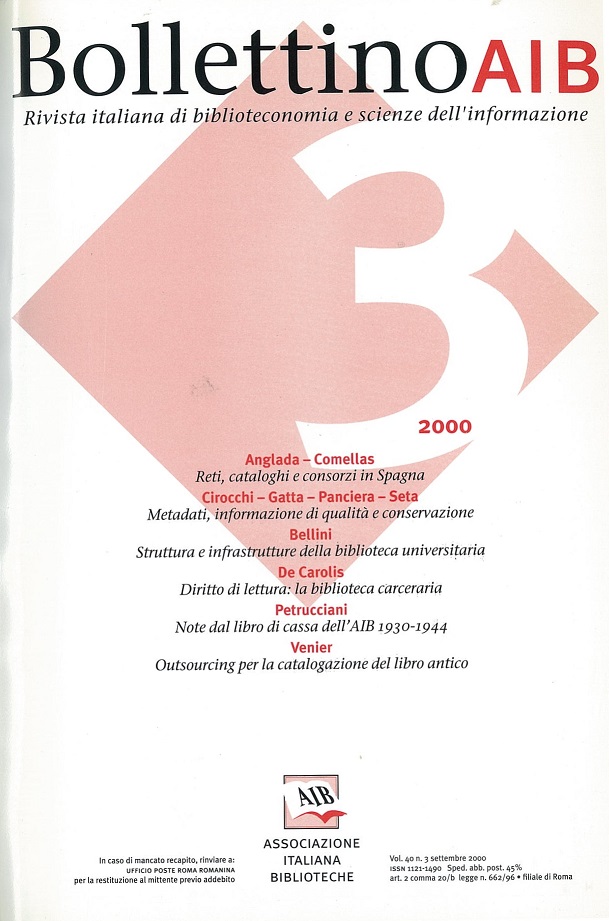Library networks, union catalogues and consortia in Spain: the experience of the Consorci de biblioteques universitàries de Catalunya
Main Article Content
Abstract
This article describes the most significant cooperation experiences in Spain, focusing attention on existing union catalogues and on the library consortia recently established. It also rapidly mentions the coordination efforts made at national level. The authors dwell in particular on some experiences carried out in the university environment where the signs of the deep change that has taken place in the Spanish library scene in the last fifteen years are more noticeable. The beginning of the process of renewal undertaken by the Spanish university libraries dates in fact to 1984, when the approval of the university reform act provided the universities with the degree of independence that permitted them to renew their way of functioning and undertake a process of modernization of their libraries which produced remarkable results, with the construction of new buildings, the automation of services and the beginning of the associative and cooperative movement.
After some introductory pages dedicated to the antecedents of this movement and to a synthesis of the cooperation experiences undertaken in the sector of special libraries (Coordinadora de documentación biomédica, DOCUMAT, ABBA, MECANO), a brief examination, that underlines the salient points and common aspects, is made of the Spanish union catalogues. These can be subdivided into three large groups: catalogues of public libraries; catalogues of academic libraries; catalogues of libraries of various types in the same geographic area. The latter group includes - at Spanish and Catalan level respectively - the Catálogo colectivo del patrimonio bibliográfico and the Catàleg col·lectiu del patrimoni bibliogràfic de Catalunya. It is precisely Catalonia that offers the most advanced example of library cooperation, with the Consorci de biblioteques universitàries de Catalunya (CBUC), to which in fact the heart of the article is dedicated, after having previously mentioned other cooperation experiences implemented in the university environment.
The CBUC is the consortium established by the eight public universities of Catalonia and by the Biblioteca de Catalunya. Its formation, in 1996, was the Spanish answer to the tendency to create library consortia, that emerged at international level especially starting from the second half of the Nineties. After having illustrated the history of the CBUC, the first important result of the Consortium is analyzed. This is the Catàleg col·lectiu de les universitats de Catalunya (CCUC), which currently contains more than 1,600,000 records, providing access to over 3,300,000 physical documents located in 120 libraries. For the users of the libraries that are members of the CBUC, access to this large bibliographic collection is facilitated by a mutual lending agreement, and, more generally, by a considerable strengthening of the ILL. Among the many projects carried out by the CCUC (staff continuing education, protocols for the evaluation of library services, etc.), noticeable is the creation of the Biblioteca digital de Catalunya (BDC), a vast collection of electronic resources that acts as an homogeneous and interdisciplinary support for all CBUC users. A service has in fact been activated within the sphere of the BDC that provides access to electronic indexes of more than 6,500 periodicals received by the libraries belonging to the Consortium. As well as continuing the study regarding the possibility of new subscriptions to databases and electronic journals for the BDC and as well as continuing to extend the table-of-contents database, the CBUC is also working in other directions, with a project for a database of Catalan doctoral theses in electronic format and another that foresees the cooperative indexing of electronic resources.
Article Details

This work is licensed under a Creative Commons Attribution-ShareAlike 4.0 International License.
